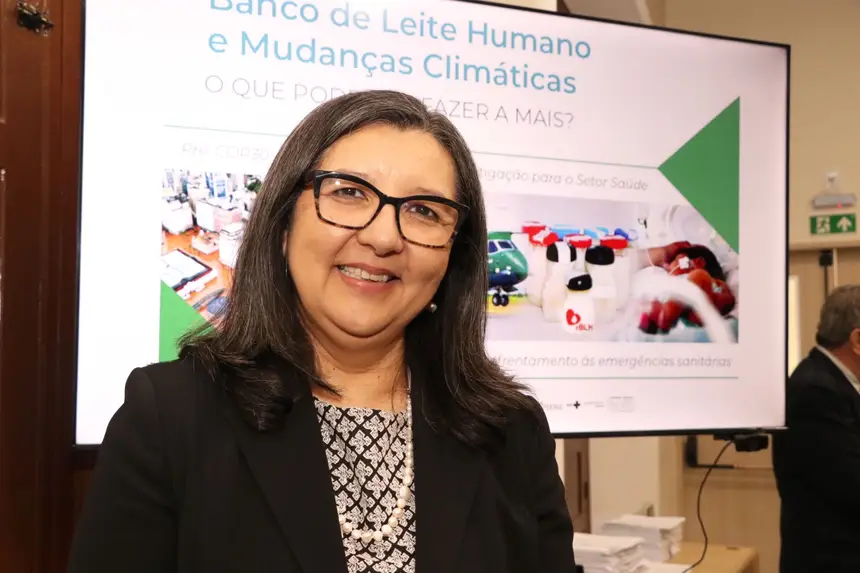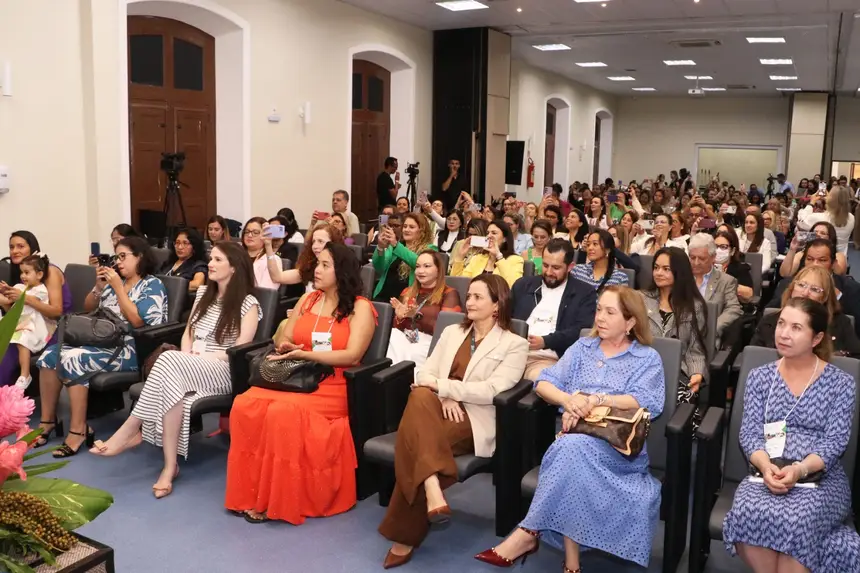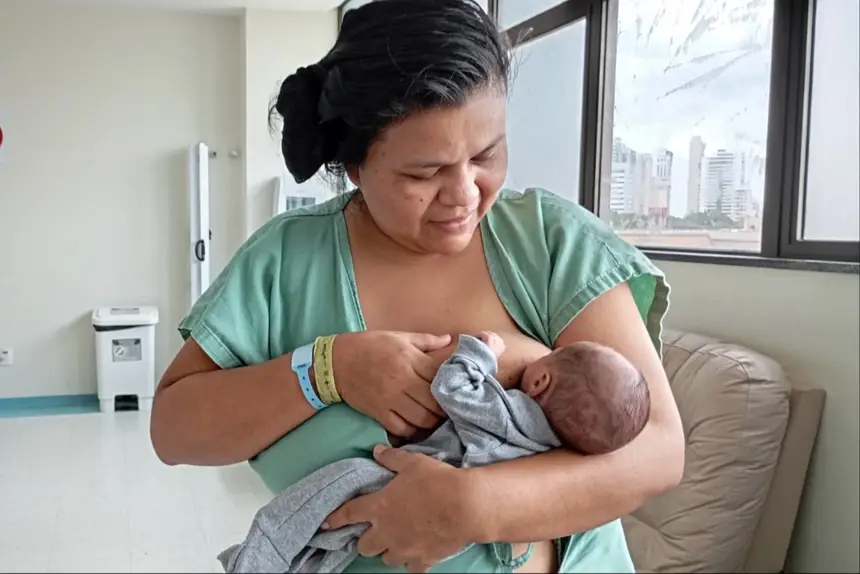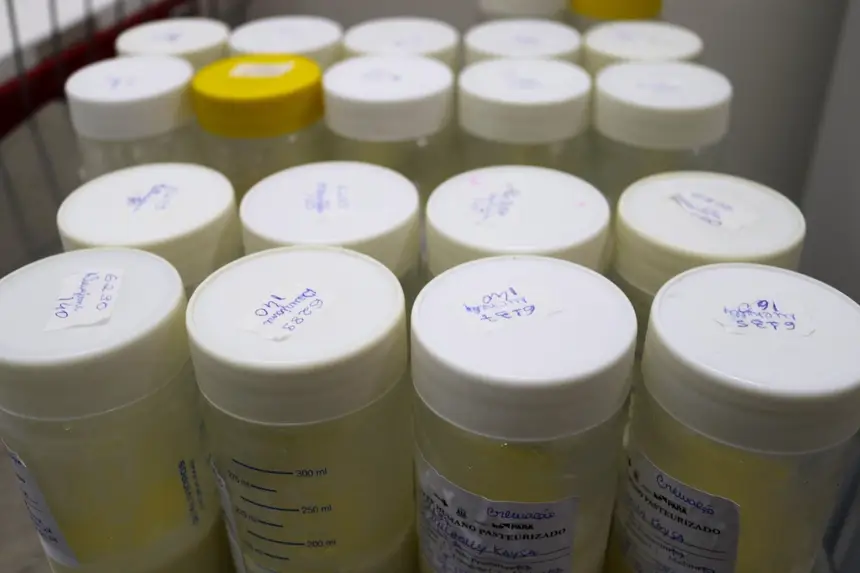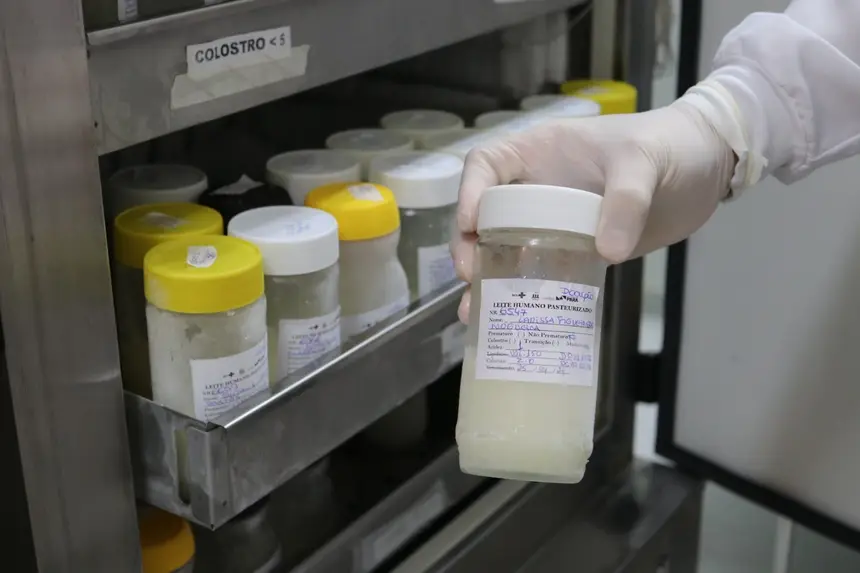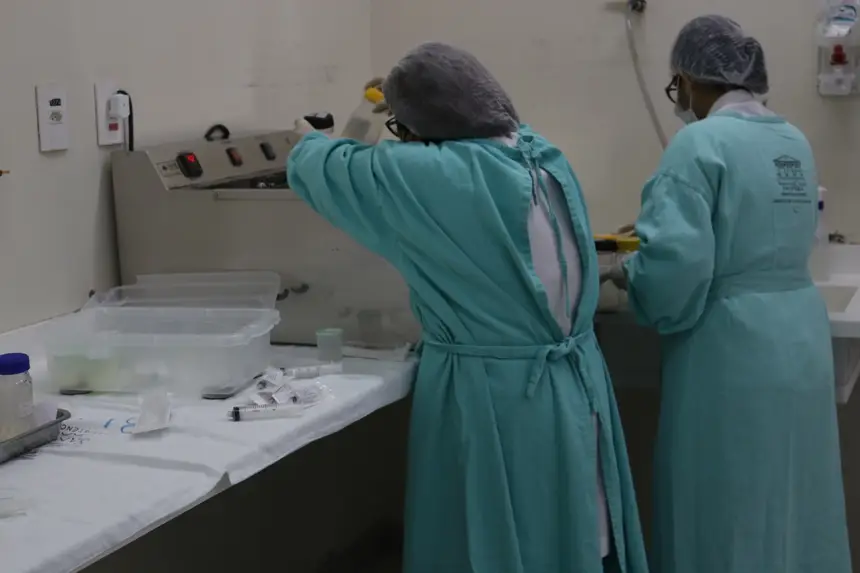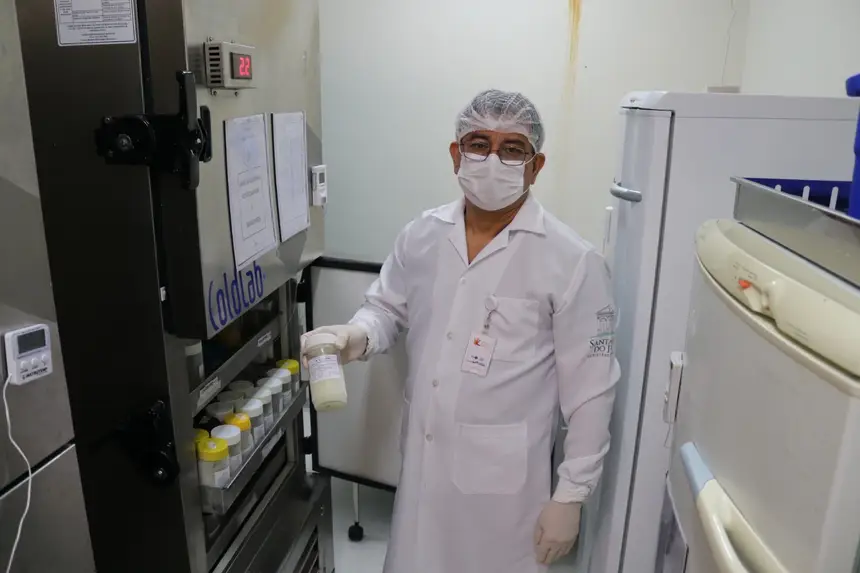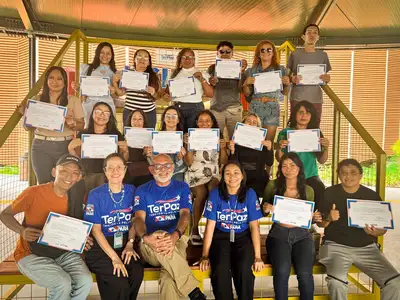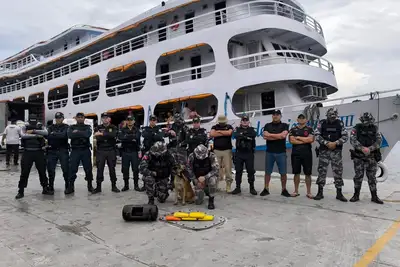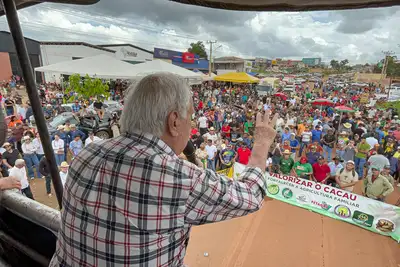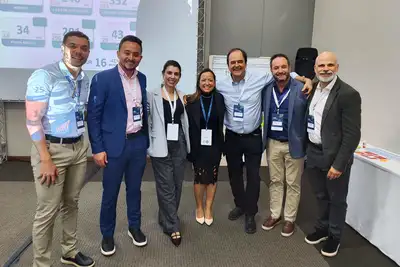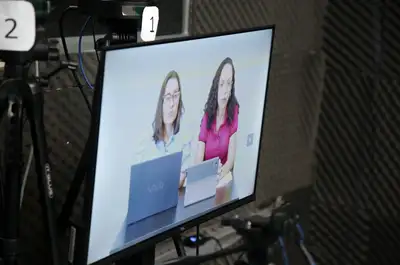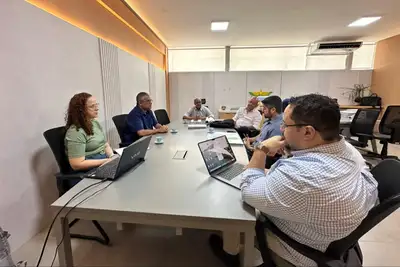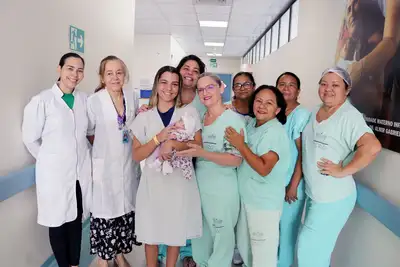Belém hosts international event on Human Milk Banks and climate change
The meeting brings together representatives from more than ten countries and all Brazilian states to discuss environmental impacts on neonatal health
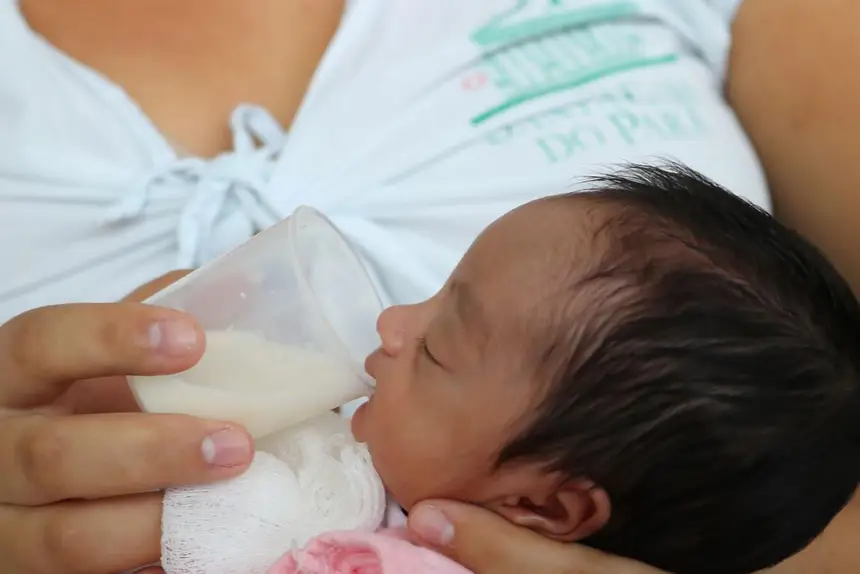
The international event "Human Milk Bank and Climate Change – What more can we do?" was opened this Tuesday (6) at the Santa Casa de Misericórdia do Pará Foundation in Belém.
The meeting, which continues until this Wednesday (7), gathers representatives from more than ten countries and all Brazilian states to discuss strategies in light of health emergencies and the challenges posed by climate change to public health.
Part of the Pre-COP30 agenda, the event is promoted by the Brazilian Network of Human Milk Banks (rBLH)/IFF/Fiocruz, the Ministry of Health, and PAHO/WHO, with support from the Pará State Department of Public Health (Sespa) and the Santa Casa Foundation. The aim is to align public policies for child protection with actions to confront the climate crisis.
During the opening ceremony, the Secretary of State for Public Health, Ivete Vaz, emphasized that the event "strengthens support networks and inter-institutional solutions, highlighting the human milk bank as a strategic pillar for the survival of newborns in vulnerable situations." According to her, discussing the topic from an environmental perspective "reinforces the commitment to the future of our people and the planet."
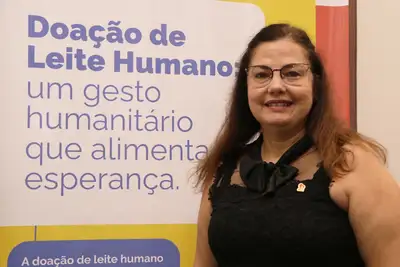
The coordinator of the Human Milk Bank at Santa Casa, nutritionist Cynara Souza, stated that the Forum aims to leave a practical legacy, with guidelines that will guide the network's actions in 2025. "We want to create a work line agreed upon based on shared experiences and perspectives," she explained. She also highlighted the importance of network action: "What we experienced with the emergency in Rio Grande do Sul is proof of this. The national mobilization ensured the delivery of human milk to neonatal therapy units that were isolated and out of supply. This joint work saved lives."
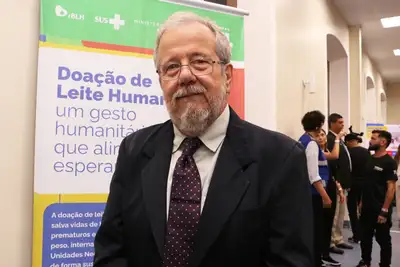
One of the highlights of the program was the speech by the coordinator of the Brazilian Network of Human Milk Banks, João Aprígio de Almeida, who classified the meeting as a milestone in the history of the network. "This event marks the rBLH's action in the context of the pre-COP30 and reinforces that it is not a trendy agenda. We are closely experiencing the health emergencies arising from the climate crisis," he stated.
According to Aprígio, the Brazilian network's response to the floods in the South of the country is a concrete example of the positive impact of national coordination: "In less than 24 hours, we gathered 768 liters of human milk, which were safely delivered to neonatal ICUs in Rio Grande do Sul, with the support of the Brazilian Air Force. This initiative gained international dimension and was presented by the World Health Organization."
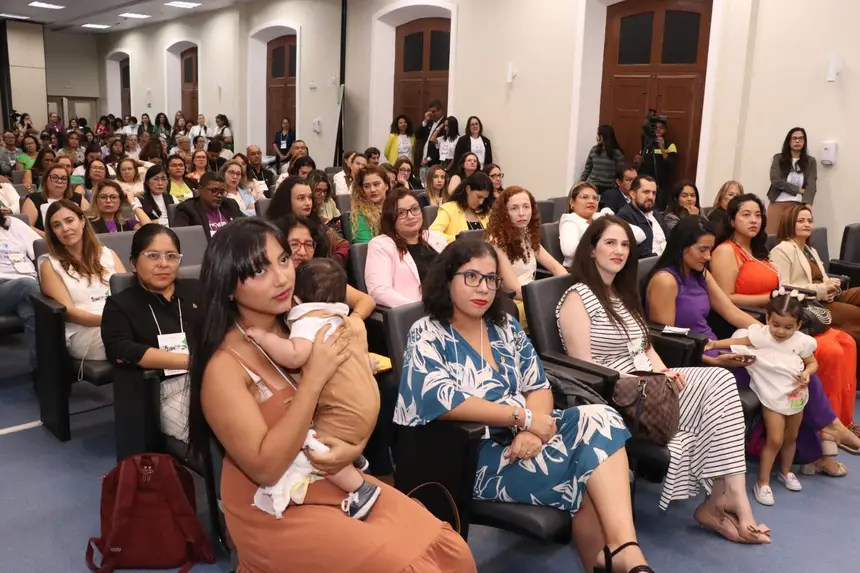
The coordinator also announced the project "Vira Tempo," which aims to make milk banks even more prepared to act in emergencies. "Vira Tempo is about being on standby, with quick actions, to assist those in greatest need," he summarized. He also emphasized the symbolism of holding the event in Belém, a city that will host COP30 in 2025. "Belém is home to the first and oldest milk bank in the Amazon. It is a national pride that needs to be known and valued. Furthermore, we are gathering all the countries of the Pan-Amazon here to discuss the creation of a permanent forum on the subject," he revealed.
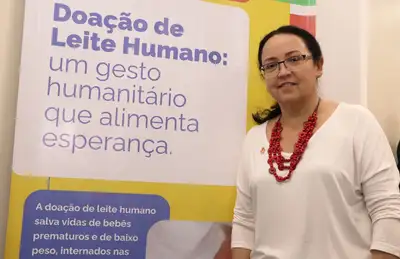
The Child Health Coordinator, Ana Guzzo, emphasized that the international event helps to show breastfeeding as a strategy for reducing environmental damage. "Breast milk not only saves the lives of babies but also prevents the environmental impacts generated by the production, storage, and transportation of infant formulas, as well as the disposal of packaging. Promoting breastfeeding is protecting the environment," she argued. Ana also mentioned the state's investments in expanding the network. "We have five human milk banks operating in Pará, and five new ones are planned for implementation in the municipalities of Marabá, Breves, Santarém, Parauapebas, Abelardo Santos, and the Lower Amazon region. We have also advanced with the qualification of hospitals in the 'Baby-Friendly Hospital' Strategy and with the expansion and strengthening of Proames in basic health units," she informed.
The General Coordinator of Child, Adolescent, and Youth Health Care at the Ministry of Health, Sônia Venâncio, reinforced the role of the network in the face of new threats to public health. "We are experiencing a climate crisis with direct impacts on health, especially for children. Milk banks are essential to ensure the best food for babies in any scenario, including emergencies," she stated.
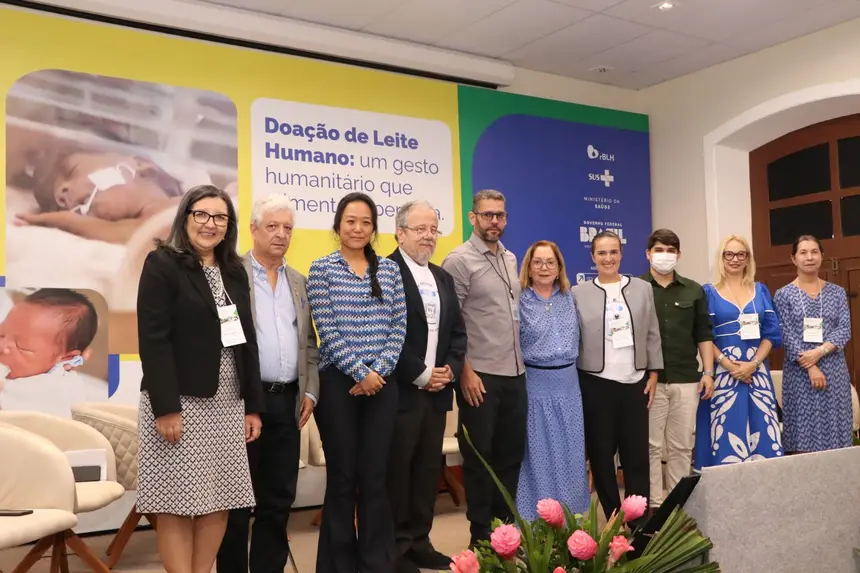
The national official of the Pan American Health Organization (PAHO) in Brazil, Akemi Kamimura, highlighted that human milk is more than food: "It is one of the most effective health interventions and a powerful strategy for food and nutritional security. In times of crisis, ensuring access to human milk is saving lives and contributing to a more sustainable planet," she said.
The program continues until tomorrow, Wednesday, with round tables, mini-conferences, and tributes to institutions and professionals who worked in health emergencies in 2024. The slogan of the National Human Milk Donation Campaign for 2025 was also launched, which this year was: "Human Milk Donation: A humanitarian gesture that feeds hope!" The event is being broadcast live on the rBLH YouTube channel.


